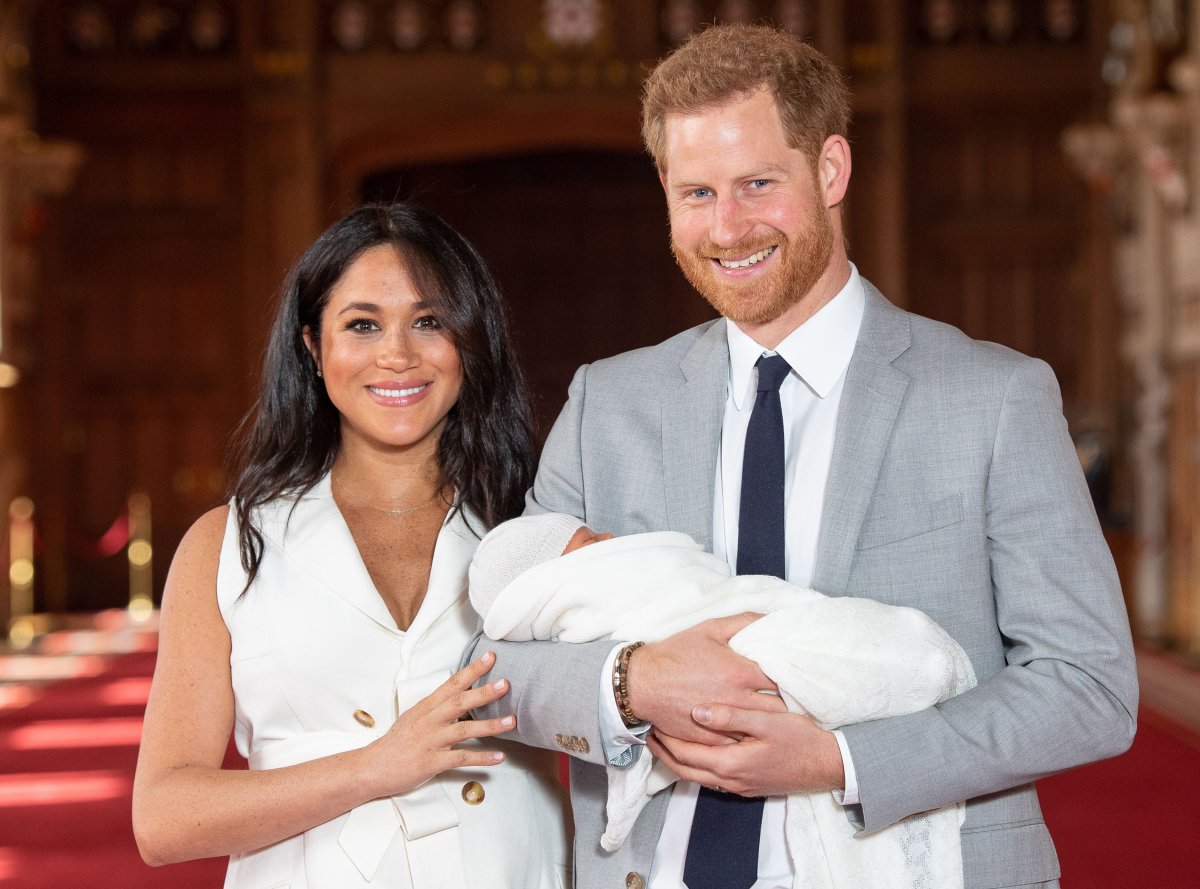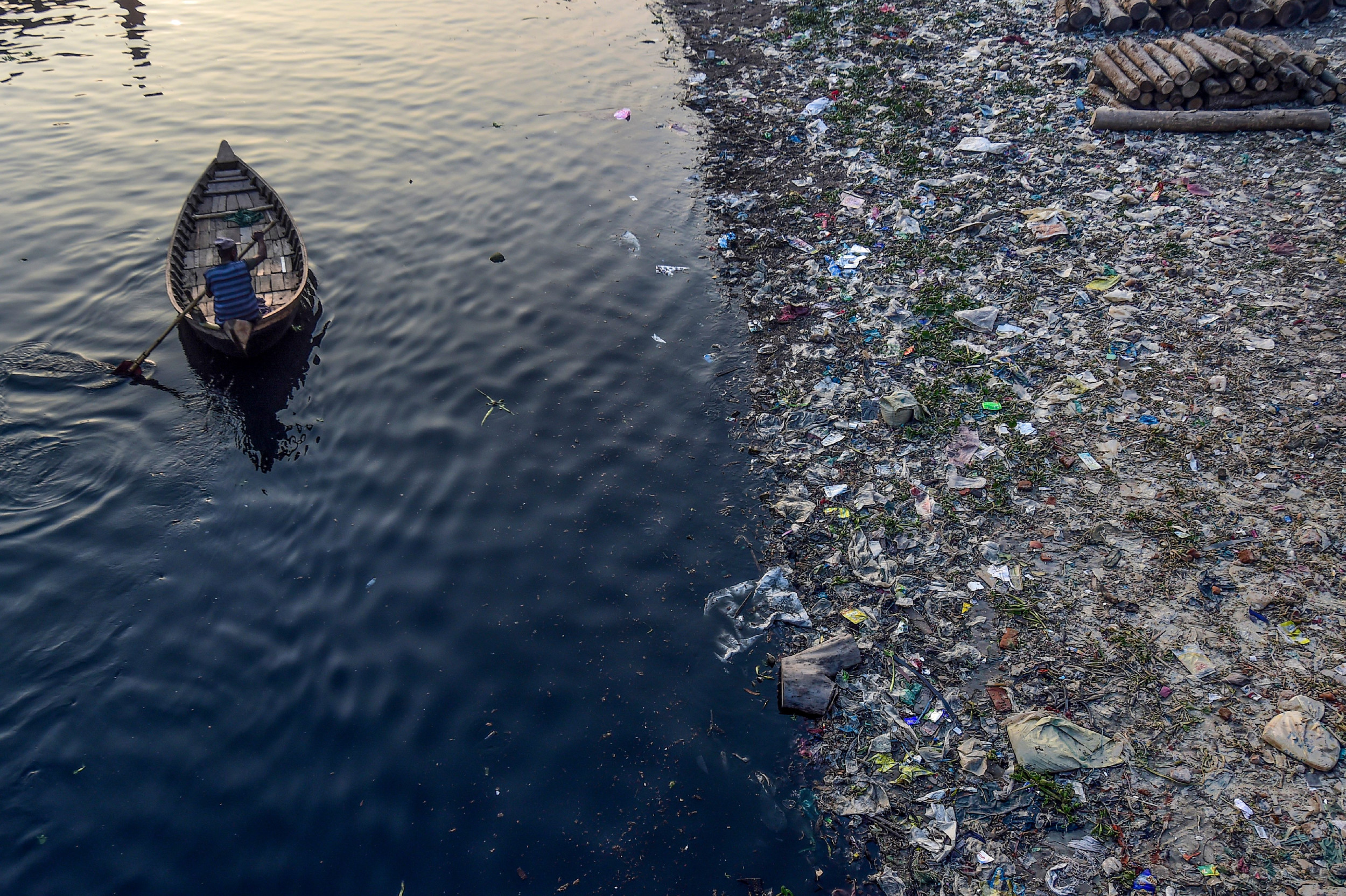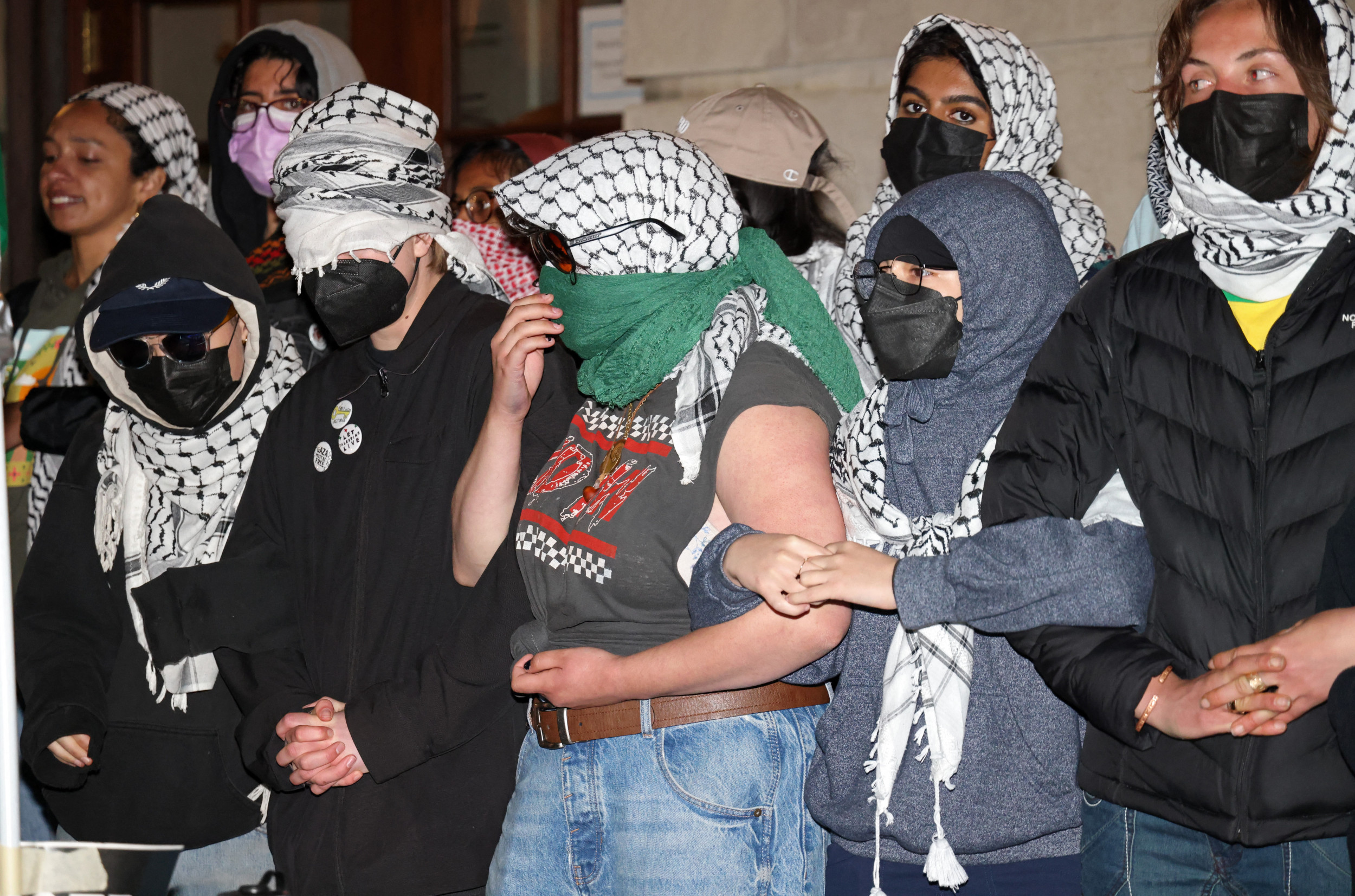Archie, son of Prince Harry and Meghan Markle, the Duke and Duchess of Sussex, does not have a title like his cousins Prince George, Princess Charlotte, and Prince Louis, the children of Prince William and Catherine, the Duke and Duchess of Cambridge.
In an interview that aired on Sunday, Meghan told Oprah Winfrey that when she was pregnant, there were conversations about whether Archie would have a title. Meghan said: "They were saying they didn't want him to be a prince or princess, not knowing what the gender would be, which would be different from protocol."
So why doesn't Archie have a title? As per royal rules, Archie is not automatically entitled to the title of prince, but he may be one day. However, when he was born, Archie was entitled to use the title of a child of a duke, but Harry and Meghan chose for him to be known as Master Archie instead.
Titles of the Queen's Grandchildren and Great Grandchildren
In 1917, King George V issued letters patent stating that the children of the monarch would receive the titles prince or princess. Additionally, it stated that the children of the sons of the monarch would receive the same titles and that the eldest living son of the eldest son of the Prince of Wales would be given the title prince.
It also stated that grandchildren of the sons of the monarch in the direct male line "shall have the style and title enjoyed by the children of Dukes."
This would mean that Queen Elizabeth II's children—Prince Charles, Princess Anne, Prince Andrew, and Prince Edward—would receive the title prince or princess.
It also means that Prince Charles' children, Prince William and Prince Harry; Prince Andrew's children, Princess Beatrice and Princess Eugenie; and Prince Edward's children, Lady Louise Windsor and James, Viscount Severn, would receive titles.
Prince Edward's children are not prince and princess—but for a reason. When Prince Edward married Sophie Rhys-Jones, he became Earl of Wessex— rather than a duke, breaking royal tradition—though he is scheduled to become the Duke of Edinburgh after Prince Phillip dies.
At the time of Edward's wedding, the Queen decided (with the consent of her son and his wife) that any future children of theirs would receive the titles of the children of an earl.
Princess Anne's children, Peter Phillips and Zara Tindall, are not prince nor princess either. As the daughter rather than the son of the Queen, Anne's children were not automatically entitled to the titles prince or princess, unlike the children of Charles, Andrew, and Edward.
When Peter was born, the BBC reported: "Both the princess and her husband are said to have rejected an offer from the Queen of titles which would have enabled their children to be born into the peerage."
George V's letters patent also stated that the eldest living son of the eldest son of the Prince of Wales would be given the title prince, which would mean that Prince William's son George would be automatically entitled to be a prince, but William's other children would not. Instead, they would have been given the titles of the children of a duke.

However, in December 2012, it was reported that Queen Elizabeth II had revised George V's patent, ahead of the birth of Prince George, who was born on July 22, 2013.
The Gazette reported: "The Queen has been pleased by Letters Patent under the Great Seal of the Realm dated 31 December 2012 to declare that all the children of the eldest son of The Prince of Wales should have and enjoy the style, title and attribute of Royal Highness with the titular dignity of Prince or Princess prefixed to their Christian names or with such other titles of honor."
This meant that all of Prince William's children would have the title prince or princess, as William is the eldest son of the Prince of Wales. This is why George, Charlotte, and Louis are all either prince or princess.
Why Archie Does not Have the Title Prince
This rule does not apply to Archie, however, as his father Harry is not the eldest son of the Prince of Wales.
Nevertheless, the current rules suggest that Archie will be entitled to be prince one day, as the male-line grandchildren of the monarch (the children of the monarch's sons) are entitled to the title prince or princess.
Therefore, as per George V's letters patent, Archie will be entitled to the title prince when Prince Charles becomes king, as then he will become the grandchild of the monarch, rather than the great-grandchild. Additionally, Harry and Meghan's daughter, who is expected to be born this summer, will be entitled to the title princess.
Although Archie is not yet entitled to be a prince, when he was born he was entitled to have the title of the son of a duke, as Harry is the Duke of Sussex.
However, Harry and Meghan chose not to use a title for Archie, such as Lord Archie Harrison Mountbatten-Windsor or Archie, Earl of Dumbarton. Instead, as reported by The New York Times, they chose for their son to be known as Master Archie, "in line with his father's wish that he grow up as a private citizen."
Uncommon Knowledge
Newsweek is committed to challenging conventional wisdom and finding connections in the search for common ground.
Newsweek is committed to challenging conventional wisdom and finding connections in the search for common ground.
About the writer
To read how Newsweek uses AI as a newsroom tool, Click here.








